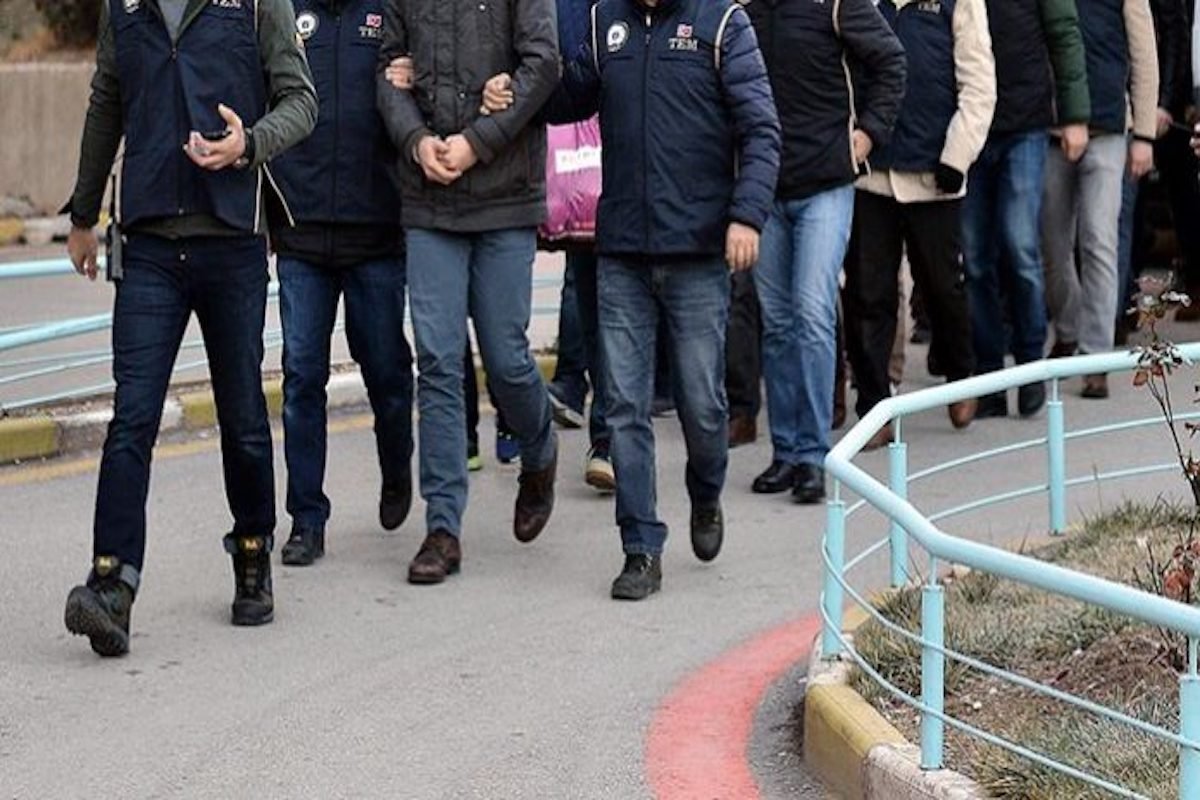
Major violations of prisoners’ rights have been occurring in large quarantine cells, where up to 30 inmates are forced to live together for months, Vedat Ece from Independent Lawyers’ Association (ÖHD) claimed.
Speaking to the Evrensel news website, Ece said two regular cells in İstanbul’s Silivri Prison were turned into quarantine cells. “One of the cells is for quarantining new arrivals, and the other is for quarantining inmates who were taken to court or the hospital,” he said. According to Ece, the cells had enough room for 30 people, and the prison administration did not start official quarantine periods until the cells were full.
“Normally inmates are required to quarantine for two weeks,” he said, “but the prison administration does not start the process unless there are 30 prisoners in the cell. This causes some inmates to spend months in these cells waiting for the quarantine to officially start.”
Ece added that inmates who had been quarantining for months kept coming in contact with new inmates because of this system, putting their health in jeopardy.
According to Ece, prison personnel said they were simply carrying out orders from the Ministry of Justice. Inmates could stay up to a year in a quarantine cell if it had not reached full capacity.
Ece stressed that conditions in these cells were unsanitary and that the inmates were not provided with cleaning products to disinfect the quarters.
He said he interviewed inmates in Silivri Prison, notorious for its large number of political prisoners, where he found that inmates were not allowed sports, cultural activities or any kind of socialization during the long months of quarantine.
“Inmates cannot even access their mail,” Ece said, “and the prison administration has not responded to inmates’ petitions asking for better conditions.” He added that the prison administration also refused to talk to ÖHD about improving conditions.
In addition to these problems, inmates do not have access to doctors, dentists and sometimes even hot water, said Ece. He claimed that inmates in pain were treated haphazardly with antibiotics and painkillers.
Inmates with preexisting medical conditions also have been experiencing difficulties in accessing healthcare. “An inmate in Metris Prison in İstanbul had experienced some paralysis, and his medical report stated he needed surgery,” Ece said. “However, it is not clear when the surgery will take place, and he is kept in prison in that state.”
Other inmates have also complained about the long quarantine periods in prisons and their inability to access proper healthcare.
Prison quarantine cells came under intense scrutiny by human rights activists and opposition politicians a few weeks ago after post-mortem photographs of a former police officer who died in prison were made public.
Mustafa Kabakçıoğlu, 44, was found dead in a quarantine cell in a prison in the Black Sea city of Gümüşhane. The photographs shed light on the unsanitary conditions in which he was forced to live. They also showed he was sleeping on a mattress underneath the stairs.
Kabakçıoğlu suffered from multiple health problems including diabetes and asthma and was taken to a quarantine cell because he was coughing excessively. A week later he died alone in the same cell, and the conditions surrounding his death are still unclear.
Following a coup attempt in 2016, the Turkish government declared a state of emergency and launched a massive crackdown on followers of the Gülen movement under the pretext of an anti-coup fight. Over 540,000 people were detained on terrorism-related charges, more than 80,000 were arrested or imprisoned, and in excess of 150,000 public servants, including 4,156 judges and prosecutors, were removed from their jobs for alleged membership in or ties to “terrorist organizations.”
The Turkish government accuses the Gülen movement, a faith-based group inspired by Muslim cleric Fethullah Gülen, of masterminding coup attempt and labels it a terrorist organization. The movement strongly denies involvement in the failed coup or any terrorist activity.
The massive purge has led to an overcrowding of Turkey’s prisons and exacerbated rights violations.
Turkey’s parliament passed a law in April that allowed the release of tens of thousands of prisoners to ease overcrowding in prisons and protect detainees from COVID-19. The bill excluded those imprisoned on terrorism charges.
Amnesty International and 26 other rights groups and civil society organizations from Turkey and around the world released a joint statement in March calling for the release of Turkey’s political prisoners, particularly those with a high risk of complications due to COVID-19, caused by the novel coronavirus.
The statement echoed previous calls on the Turkish government by rights defenders to relieve the overcrowded prisons and protect the lives of prisoners who are at high risk of infection. “In Turkey, anti-terrorism legislation is vague and abused in trumped up cases against journalists, opposition political activists, lawyers, human rights defenders and others expressing dissenting opinions,” the statement said.
















[…] İhsan Arif is currently in a quarantine ward with his mother. His mother is reportedly distressed as quarantine cells in Turkish prisons are notorious for their poor conditions and overcrowding. […]
[…] The representative story reads: “Another child has joined a parent in a Turkish prison, as two-and-a-half-year-old İhsan Arif Cesur was forced to accompany his mother, Melek Cesur, in a prison in western Edirne province after his father was arrested the same day. İhsan Arif is currently in a quarantine ward with his mother. His mother is reportedly distressed as quarantine cells in Turkish prisons are notorious for their poor conditions and overcrowding. […]
[…] Inmates who need to go to the hospital are required to stay in a quarantine cell when they return to prison due to COVID-19 measures. However, these cells are notorious for their poor conditions and overcrowding. […]
[…] Inmates who need to go to the hospital are required to stay in a quarantine cell when they return to prison due to COVID-19 measures. However, these cells are notorious for their poor conditions and overcrowding. […]
[…] Due to COVID-19 regulations, Çay is made to stay in a quarantine cell each time he goes to the hospital. However, quarantine cells are not equipped for a disabled person. Additionally, these cells are notorious for their poor conditions and overcrowding. […]
[…] Inmates who have just arrived in prison are required to stay in a quarantine cell due to COVID-19 measures. However, these cells are notorious for their poor conditions and overcrowding. […]